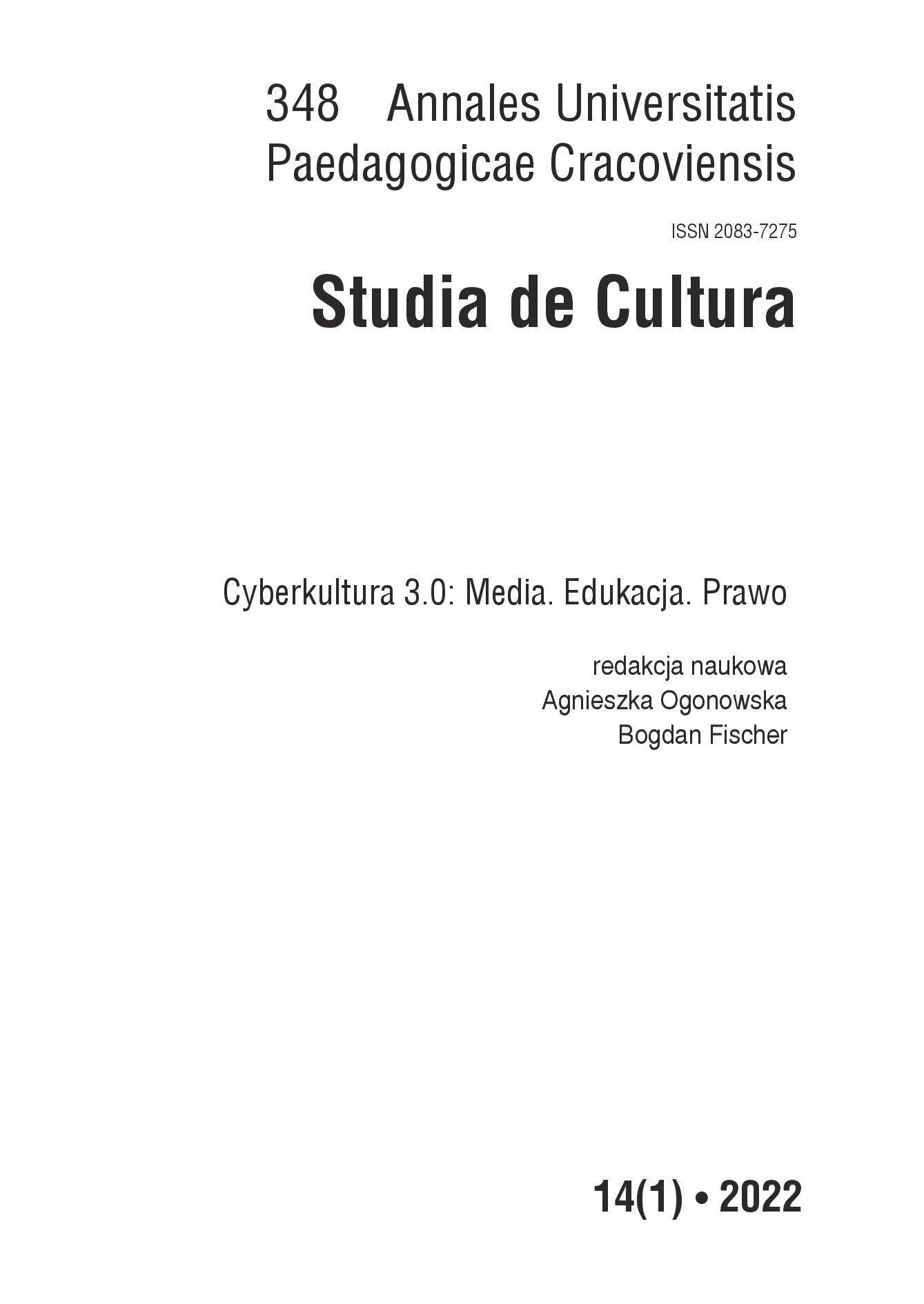Abstract
The purpose of the article is to show the relationship between intrigue and conspiracy and the dominant medium and the competences of its users. This issue is presented in two perspectives: diachronic and functional with the category of key competences taken into account. These perspectives co-create the so-called social history and media theories. They make it possible to understand the role of universal and transhistoric motivations of schemers and conspirators in the development of communication media up to modern times marked by hybrid threats. The possibility of using these unconventional means in military operations and social surveillance is the result of the dynamic development of new networked, interactive and mobile technologies. This development, in turn, requires from the citizens of planetary society an acquiring of new, increasingly complex competences.
References
„Archiwista cyfrowy” i infobroker. Kształcenie, sylwetka, wyzwania. 2016. Dorota Drzewiecka, Bartosz Drzewiecki (red.). Kraków.
View in Google Scholar
Arendt Hannah. 2021. Korzenie totalitaryzmu. Daniel Grinberg, Mariola Szawiel (przeł.). Warszawa.
View in Google Scholar
Bard Aleksander, Söderqvist Jan. 2006. Netokracja. Nowa elita władzy i życie po kapitalizmie. Piotr Cypryański (przeł.). Kraków.
View in Google Scholar
Baudrillard J. 2006. W cieniu milczącej większości. Sławomir Królak (przeł.). Warszawa.
View in Google Scholar
Briggs Asa, Burke Peter. 2015. Społeczna historia mediów: od Gutenberga do Internetu. Jakub Jedliński (przeł.). Warszawa.
View in Google Scholar
Butler Judith. 2010. Walczące słowa. Mowa nienawiści i polityka performatywu. Adam Ostolski (przeł.). Warszawa.
View in Google Scholar
Keyes Ralph. 2004. The Post-Truth Area. New York.
View in Google Scholar
Kulturowa teoria literatury. Główne pojęcia i problemy. 2012. Michał Paweł Markowski, Ryszard Nycz (red.). Kraków.
View in Google Scholar
Mały leksykon postprawdy. Fake news. 2018. Piotr Drzewiecki, Barbara Głębicka-Giza (red.). Warszawa.
View in Google Scholar
Noelle-Neumann Elisabeth. (2004). Spirala milczenia. Opinia publiczna – nasza skóra społeczna. Joanna Gilewicz (przeł.). Poznań.
View in Google Scholar
Ogonowska Agnieszka. 2004. Przemoc ikoniczna. Zarys wykładu. Kraków.
View in Google Scholar
Ogonowska Agnieszka. 2007. Między reprezentacją a symulacją. Szkice z socjologii mediów, Kraków.
View in Google Scholar
Ogonowska Agnieszka. 2010a. „Mock – documentary” i „faction genre”: wyzwanie dla kina dokumentalnego i paratekstualne gry z widzem. W: Kino po kinie. Film w kulturze uczestnictwa. Andrzej Gwóźdż (red.). Warszawa. 269–292.
View in Google Scholar
Ogonowska Agnieszka. 2010b. Polityka (re)prezentacji. Studia i szkice o kulturze medialnej. Kraków.
View in Google Scholar
Ogonowska Agnieszka. 2015a. „Kompetencje medialne i informacyjne: wybrane modelowe ujęcia i koncepcje”. Zeszyty Prasoznawcze” t. 58, nr 1(221). 72–88.
View in Google Scholar
Ogonowska Agnieszka. 2015b. Komunikacja i porozumienie. Sztuka bycia razem, tworzenia więzi i rozwiązywania konfliktów. Kraków.
View in Google Scholar
Piontek Dorota. 2011. Komunikowanie polityczne i kultura popularna. Tabloidyzacja informacji o polityce. Poznań.
View in Google Scholar
Pipes Daniel. 1998. Potęga spisku. Wpływ paranoicznego myślenia na dzieje ludzkości. Sławomir Kędzierski (przeł.). Warszawa.
View in Google Scholar
Pratkanis Anthony, Aronson Elliot. 2014. Wiek propagandy: używanie i nadużywanie perswazji na co dzień. Józef Radzicki, Marcin Szuster (przeł.). Warszawa.
View in Google Scholar
Storytelling and Ethics: Literature, Visual Arts and the Power of Narrative. 2017. Hanna Meretoja, Colin Davis (red.). London.
View in Google Scholar
„Studia de Cultura” 2020, 12(2): Media i komunikacja. Między „archeologią” a współczesnością. Agnieszka Ogonowska (red.).
View in Google Scholar
Tabloidyzacja języka i kultury. 2010. Irena Kamińska-Szmaj, Tomasz Piekot, Marcin Poprawa (red.). Wrocław.
View in Google Scholar
Prawda według Wikipedii, film dokumentalny. 2008. IJsbrand van Veelen (reż.).
View in Google Scholar
Assessment of the Code of Practice on Disinformation – Achievements and areas for further improvement (europa.eu). (dostęp: 21.05.2021).
View in Google Scholar
Disinformation and Propaganda – Impact on the Functioning of the Rule of Law in the EU and its Member States / Dezinformacja i propaganda – wpływ na funkcjonowanie państwa prawa w UE i jej państwach członkowskich (europa.eu). (dostęp: 21.05.2021).
View in Google Scholar
NATO – Topic: NATO’s Response to Hybrid Threats. (dostęp: 22.05.2021).
View in Google Scholar
Ocena unijnego Kodeksu postępowania w zakresie zwalczania dezinformacji – Cyberpolicy NASK. (dostęp: 21.05.2021).
View in Google Scholar
Zalecenie Rady z dnia 22 maja 2018 roku w sprawie kompetencji kluczowych w procesie uczenia się przez całe życie, Dziennik Urzędowy Unii Europejskiej C 189/2, 4.06.2018, https://eur-lex.europa.eu/legal-content/PL/TXT/PDF/?uri=CELEX:32018H0604(01)&from=EN. (dostęp: 28.11.2019).
View in Google Scholar
Zwalczanie dezinformacji w Internecie: podejście europejskie – Cyberpolicy NASK, PDF, europa.eu. (dostęp: 21.05.2021).
View in Google Scholar

This work is licensed under a Creative Commons Attribution-NonCommercial 4.0 International License.

